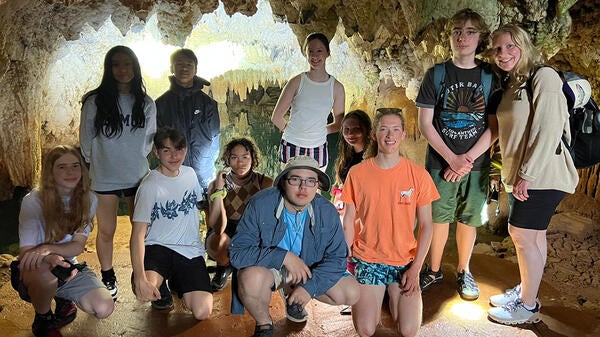The transformative power of education lies not only in the knowledge gained within the classroom walls but also in the experiences that broaden young minds beyond their familiar surroundings. Such is the case for a group of 23 students from Polaris, a K-12 grade school in Anchorage, Alaska (U.S.). In May, these ambitious learners embarked on a once-in-a-lifetime journey to Bermuda, where they had the unique opportunity to visit the Bermuda Institute of Ocean Sciences. Over the course of 10 days, these curious young minds and their educators were immersed in a variety of interactive activities that took learning beyond the confines of their Alaskan classroom.
Lessons in Sustainability: Island Style Innovations
May 03, 2023

For five days a group of 20 undergraduate students from Barnard College in New York City (U.S.) visited BIOS as part of a new course titled “Bermuda: Case Studies in Environmental Sustainability.” Offered as an elective for students majoring in environmental science or environmental sustainability, the course combines the study of the island’s ecology, geology, and hydrology with an investigation into sustainability issues, such as biological conservation, drinking water, energy production, and waste management.
Students successfully complete the “Climate Classroom” learning how to incorporate climate data into future careers
May 03, 2023
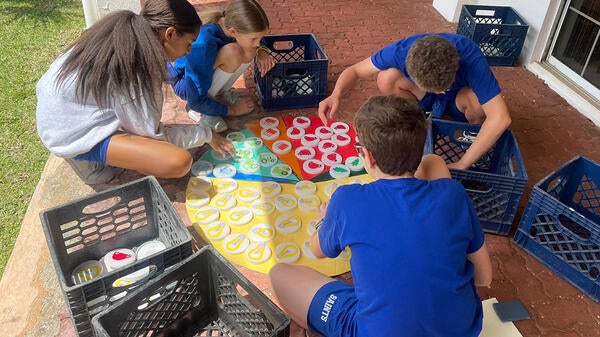
A new collaboration between BIOS and the Overview Collective provided an exciting educational opportunity for Bermudian students called The Climate Classroom. With support from lead sponsor HSBC, over 200 students participated in this gamified immersive learning experience for M2 students across Bermuda from April 18th– May 2nd. The spokesperson said, “HSBC Bermuda is delighted to be the lead sponsor for this important education program on climate change and its impact on Bermuda’s marine life. We believe this learning experience will equip our students with the tools they need to make a positive impact on the environment and contribute to a sustainable future.”
BIOS Inspires Lifelong Passion for Ocean Science
May 03, 2023
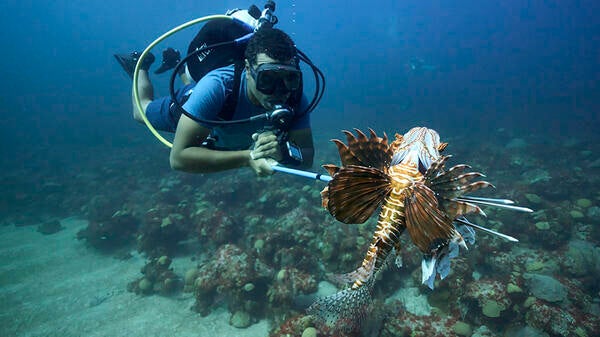
A world-class ocean science research facility, the Bermuda Institute of Ocean Sciences (BIOS) inspires the next generation of marine biologists, oceanographers, marine ecologists and more by providing K-12 and college students a captivating introduction to the science of the ocean. BIOS is now expanding its impact, joining Arizona State University as part of the Julie Ann Wrigley Global Futures Laboratory™. BIOS brings over 120 years of research and education on Earth’s largest biome to the world’s first laboratory dedicated to reshaping our relationship with our planet.
Students Identify Organisms With ‘Keys to the Ocean’
February 28, 2023
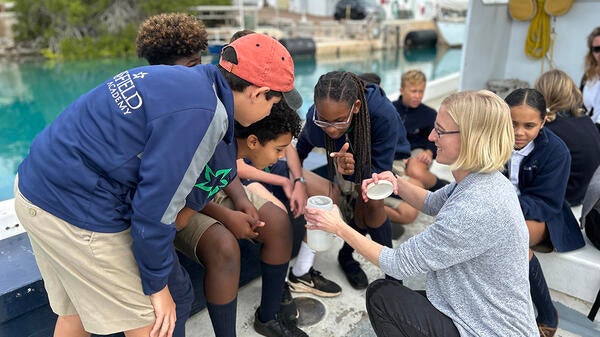
A collaboration between Arizona State University’s “Ask A Biologist” website and researchers and educators at BIOS is helping students understand the fundamental concept of taxonomy, or grouping and classifying organisms based on their physical characteristics. Claire Fox (right), BIOS science education officer, designed an online, interactive game that leads players through the use of a dichotomous key, a tool that helps scientists identify unknown organisms—in this case, species of fish or zooplankton found in Bermuda. The game, called “Keys to the Ocean,” is tied into the “Identification Keys” lesson that is offered through BIOS’s Curriculum Enrichment Program as a 2.5-hour workshop, which includes the opportunity for students to conduct a plankton tow aboard a research vessel and view live plankton under microscopes.The history of taxonomy—or the science of naming, describing, and classifying organisms—is as old as human language and speaks to a fundamental desire to understand and bring order to the natural world. A new online game developed in partnership between Arizona State University’s (ASU’s) Ask A Biologist website and BIOS is combining this fascination with ongoing research to teach students how to use a dichotomous key, a tool that helps scientists identify unknown organisms.
COVID Cancellations Lead to Confidence in Coral Reef Ecology
February 28, 2023
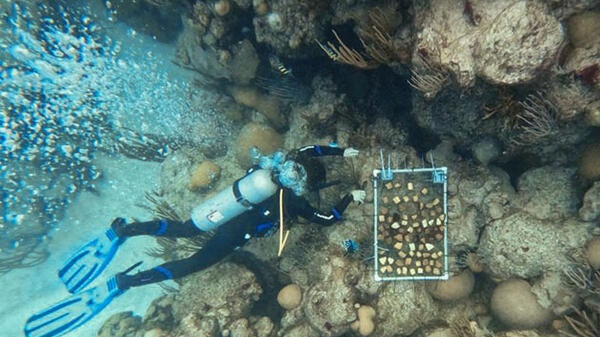
In early 2021, Nicole Burt, then 22 years old, was in her fourth year of graduate studies at the University of Southampton in England. She was close to finishing her integrated master’s degree in marine biology and was putting final touches on her thesis, which focused on the effects of dissolved inorganic nutrients, such as nitrogen and phosphorus compounds, on coral growth. Burt hoped to travel after graduation and started making plans to spend the summer conducting fieldwork in a tropical marine environment.
Spending a Short Semester Studying Abroad
January 25, 2023
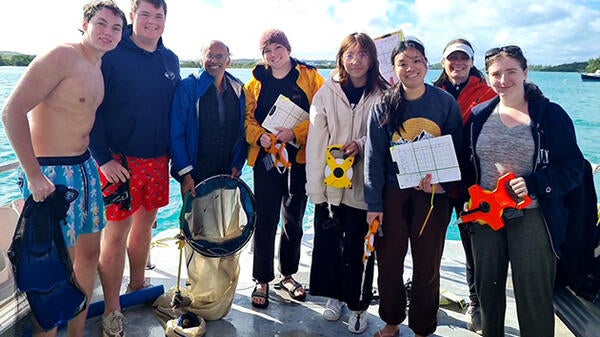
Paul Gensbigler, 20, is no stranger to the water, having spent the past two years studying the health of the Chesapeake Bay, the largest estuary in the United States. A junior majoring in molecular and cellular biology at Johns Hopkins University (JHU) in Maryland, Gensbigler is researching the microbes that help control nutrient levels in the Bay. However, this January he traded the brackish waters of the northern Chesapeake for the salty waters of the northern Atlantic in a “Hopkins Intersession Abroad” program.
ENCORE – A Step on the Path Toward More Resilient Corals
October 26, 2023
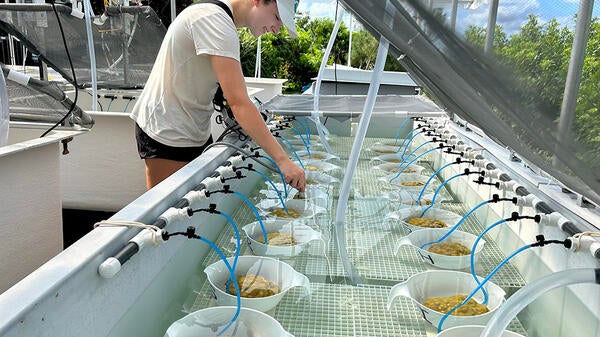
Jurassic Park’s Dr. Ian Malcolm was right. Against seemingly impossible odds, life often does “find a way.” Fictional dinosaurs notwithstanding, creatures large and small display impressive abilities to adapt to changing conditions. Sometimes, though, the changes are so rapid and profound that “life” starts losing its way. Sometimes, “life” needs a hand.
Setting the Stage for Future Field Studies
July 10, 2022
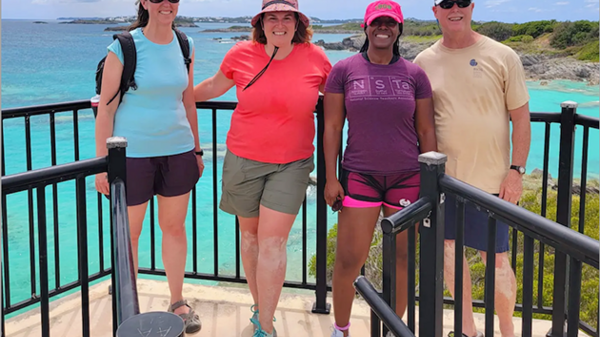
This summer marked the eighth BIOS Educator Workshop, a five-day program designed for pre-service, middle and high school teachers, college professors, curriculum specialists, administrators, and informal educators based in Canada and the U.S. who want to plan field courses at BIOS for their students.
BIOS Teacher Workshop Supports Ongoing Government Partnership
February 28, 2022
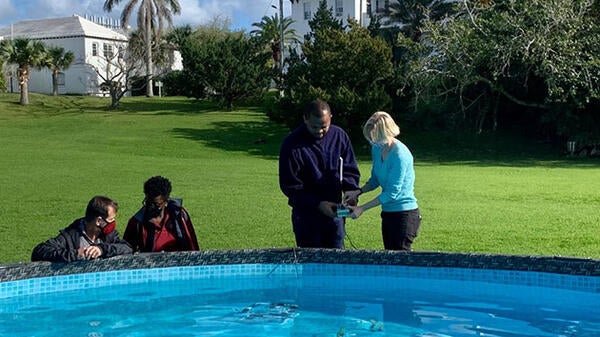
Several dozen of Bermuda’s upper elementary and middle school teachers participated in a professional development workshop over the recent half-term break, which ran from February 14 to 18 for the island’s public schools. The workshops aimed to provide educators with tangible examples of how biodiversity data collected by BIOS from the deep sea in and around Bermuda are being used to support the development of marine protected areas (MPAs) around the island as part of the Bermuda Ocean Prosperity Programme (BOPP). As BIOS is one of the three partnering organizations in BOPP, along with the Waitt Institute and the Government of Bermuda, the collaboration was a natural fit and an opportunity for BIOS to share how the work of its scientists is being leveraged in broader decision-making efforts.
